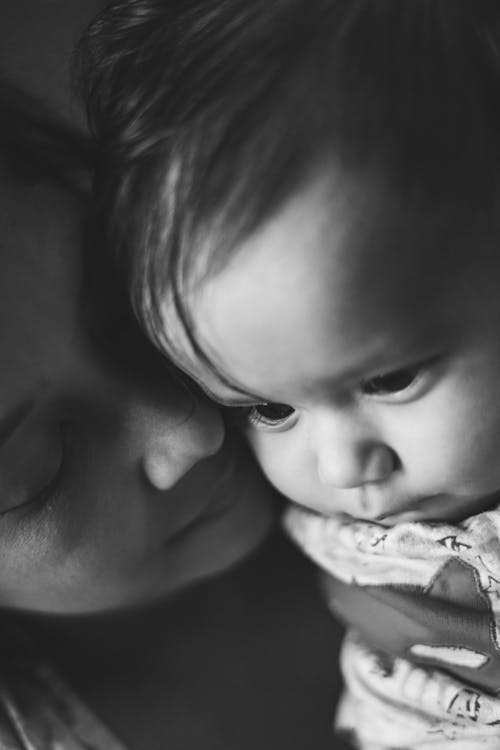Unlocking the Benefits of Postnatal Exercise Classes: A Journey to Recovery
Postnatal exercise classes play a crucial role in helping new mothers regain physical strength and emotional well-being. These classes not only provide essential fitness routines tailored for postpartum recovery but also foster community support among mothers. Through guided exercises, participants can improve core stability, enhance muscle tone, and alleviate physical discomfort following childbirth. Additionally, the sense of camaraderie developed in class settings helps combat feelings of isolation. This article explores various components of postnatal exercise classes and their transformative impact on mothers' lives, highlighting the importance of physical activity for mental health and long-term wellness.
The Importance of Postnatal Exercise Classes
Postnatal exercise classes are specially designed programs that focus on the unique needs of women after childbirth. These classes emphasize gentle exercises to help new mothers gradually regain their strength and improve their overall health. An essential aspect of postnatal exercise classes is that they target specific muscle groups affected during pregnancy and childbirth, such as the abdominal and pelvic floor muscles. By participating in these classes, mothers can effectively address common postpartum challenges, including diastasis recti and loss of pelvic support. Furthermore, the classes provide a controlled environment where instructors offer modified routines to accommodate individual recovery timelines. This tailored approach ensures safety while helping new moms build their fitness levels progressively. Additionally, by incorporating both physical activity and education, postnatal exercise classes equip women with the knowledge to care for their bodies post-delivery. Through these classes, mothers not only focus on physical rehabilitation but also enhance their emotional well-being, creating a holistic recovery experience.
Social Connection through Postnatal Exercise Classes
Another significant benefit of postnatal exercise classes is the social connection they promote among mothers. Many women experience feelings of isolation after giving birth, particularly if they are new to motherhood. These classes create a supportive community where mothers can share their experiences, challenges, and triumphs. The interactive nature of group classes encourages friendships that often extend beyond the workout sessions. This nurturing environment fosters open communication and allows participants to discuss related topics such as breastfeeding, sleep strategies, and infant development. Importantly, the bonds formed in postnatal exercise classes can be vital for emotional support as new mothers navigate the ups and downs of parenting. Ultimately, networking with other mothers can significantly improve their mental health and resilience during this transformative life stage.
Guidance from Trained Instructors in Postnatal Exercise Classes
Trained instructors are a key component of effective postnatal exercise classes. These professionals possess specialized knowledge of maternal health and fitness, enabling them to guide participants safely through exercises. Instructors design each session to accommodate varying levels of fitness and recovery, adjusting workouts based on participants' personal needs and experiences. The expert guidance ensures that mothers are performing exercises correctly, which minimizes the risk of injury as they rebuild their strength. Moreover, instructors often provide valuable feedback and modifications, encouraging mothers to listen to their bodies during workouts. This expert oversight boosts participants' confidence, empowering them to pursue their fitness goals at their own pace. Consequently, mothers can experience a sense of accomplishment as they engage in safe and productive workouts, solidifying their commitment to ongoing fitness.
Physical Benefits of Regularly Attending Postnatal Exercise Classes
Engaging in postnatal exercise classes delivers numerous physical benefits for new mothers. Regular participation promotes improved muscle tone and enhances cardiovascular fitness, vital for sustaining energy levels during the demanding early months of parenthood. Additionally, these classes help alleviate common postpartum issues such as back pain and tightness in the shoulders and neck resulting from cradling an infant. Through structured movements that emphasize correct posture, mothers can regain strength and flexibility, ultimately leading to a more balanced physique. Furthermore, as mothers advance in their routines, they often notice improvements in core strength and stability, essential for daily activities and overall physical function. The cumulative effect of consistent workouts enhances mothers' confidence in their bodies, allowing them to embrace their new roles while maintaining their health.
Incorporating Mindfulness into Postnatal Exercise Classes
Mindfulness is an integral aspect of postnatal exercise classes that contributes to mothers' emotional wellness. Instructors often incorporate mindfulness practices, such as deep breathing and relaxation techniques, into the workouts. This emphasis on mindfulness helps participants connect with their bodies and enhances their mental clarity, providing a much-needed pause in the hustle of new parenthood. By focusing on their breath and the present moment, mothers can cultivate a deeper awareness of their physical and emotional states. This practice not only helps reduce stress levels but also fosters a sense of inner peace. The integration of mindfulness in exercise creates a holistic experience, emphasizing the importance of mental health alongside physical recovery. Consequently, mothers leave postnatal exercise classes feeling rejuvenated, both physically and mentally.
Making the Most of Postnatal Exercise Classes
To maximize the benefits of postnatal exercise classes, mothers should approach them with a positive and open mindset. Each participant is encouraged to listen to her body and honor her individual recovery. Setting realistic fitness goals can help maintain motivation without feeling overwhelmed. Additionally, mothers should feel comfortable asking instructors questions about exercises and modifications to ensure they are engaging in the most effective routines. Attending classes consistently establishes a routine that can further enhance recovery and physical fitness. Moreover, incorporating additional at-home exercises can complement the classes and promote sustained progress. As they continue to develop their fitness levels, mothers may wish to explore different class styles to find the best fit for their personalities and goals. Ultimately, the journey through postnatal exercise classes is about empowering mothers to take charge of their health and well-being.
